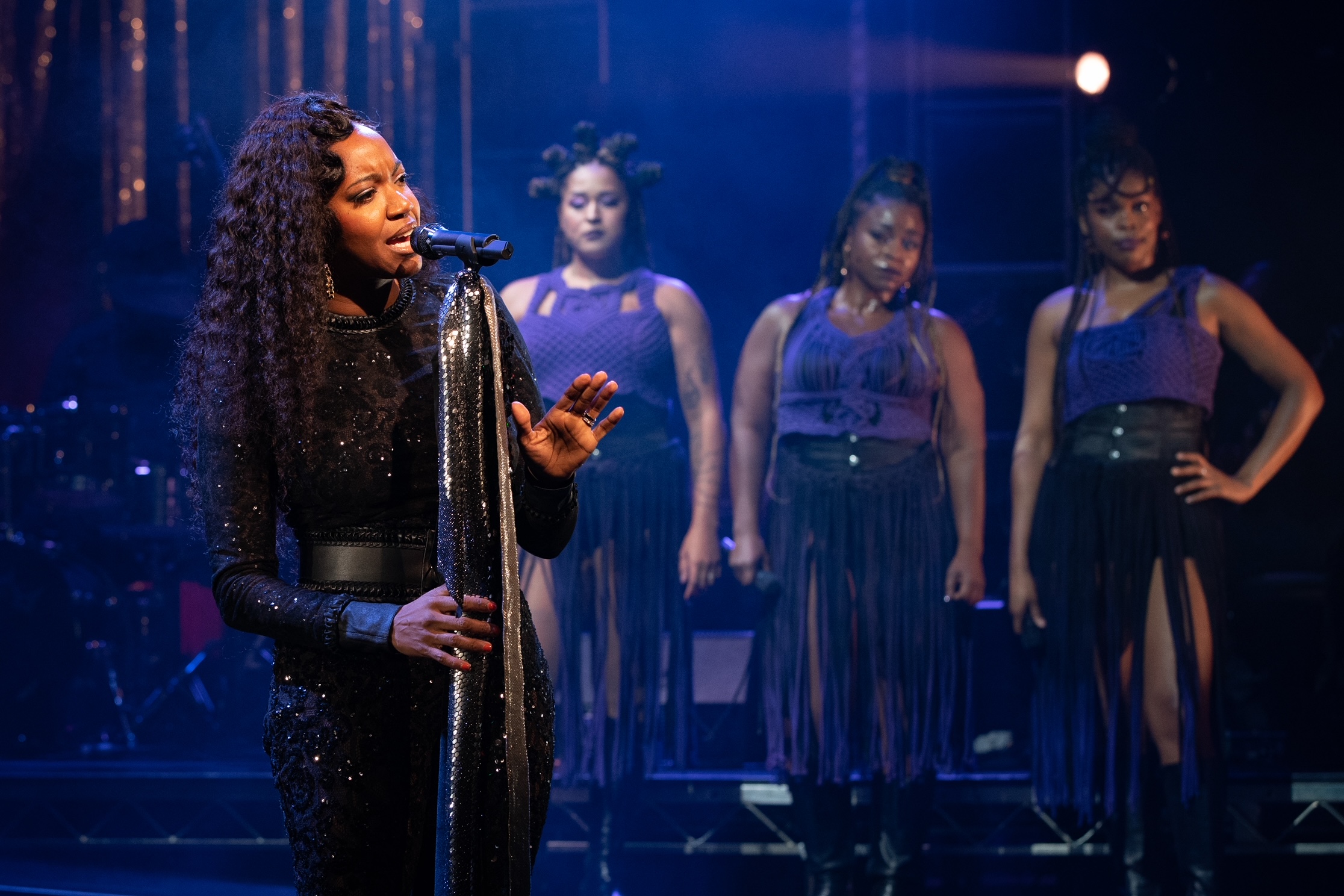Yale Rep’s “Macbeth in Stride” tells a story of Black femininity this weekend
Through R&B anthems and a feminist rendering of a Shakespearean text, “Macbeth in Stride” reshapes the narrative of one of theater’s most iconic women.

Courtesy of Teresa Wood
The Yale Repertory Theater’s “Macbeth in Stride” is set to open this Thursday, Dec. 5, until Dec. 14. The production is part of the Yale Rep’s “WILL POWER!” education program and will be shown to high school students from New Haven Public Schools, free of charge.
Written and performed by OBIE Award winner Whitney White, this musical features Lady Macbeth, the leading character of Shakespeare’s “Macbeth,” as its protagonist. White, who plays Lady Macbeth, will stand on stage alongside a live band to put a new, feminist twist on the Shakespeare classic.
“The project is like resurrecting [Lady Macbeth],” said White. “The idea of the strong woman, the power woman, the evil boss lady, the over-ambitious woman — that archetype is coming from this character.”
White was introduced to Shakespeare in high school when her class took a trip to the Chicago Shakespeare Theater. However, she didn’t truly fall in love with the author until she was a graduate student at Brown University, Trinity Repertory’s MFA program.
As she interacted more with Shakespeare’s work, she began to question: For whom was the work written? Shakespeare originally wrote and performed his works for local, often lower-class audiences; his plays tended to poke fun at the bourgeoisie of the Elizabethan era. Today, however, the plays represent an air of prestige and inaccessibility.
To White, this was something that she wanted to change.
“If you don’t have access to all this learning and understanding, all of a sudden Shakespeare doesn’t feel like it’s for the people, and that’s a problem,” she said.
White’s interest in Shakespeare lies in his examination of the day-to-day. Our “greatest writer,” she said, was a kind of “undercover activist.” He wrote of kings and creatures, religion and mythology, men and women.
In “Macbeth in Stride,” White explores various modern female archetypes, such as the “ambitious woman” and “boss lady” through a literary lens, communicating these ideas using songs, sonnets and speeches.
Directors Taibi Magar and Tyler Dobrowsky lift the language of the text and prompt the audience to question the importance of performing Shakespeare today. They found the best way to do this was to lean into the show’s “rock music aesthetic.”
“It might seem like that’s a simple thing,” said Dobrowsky, “but it actually took us a little while to crack it and learn that we leaned into the rock concert aesthetic as opposed to leaning into more of the theater.”
Within the aesthetic of a rock concert, White strips Shakespeare down to its bare text, even removing the names of the characters. Rather than titles, actors are referred to only as Woman, Man, and Witches 1, 2 and 3.
While names are removed, some aspects of identity are maintained, such as race and gender –– tools that are intentionally used by White.
Their shared gender and race unites Woman and the Witches under a kind of sisterhood. They embody the rivalry, camaraderie and everything in between that accompany female friendships. According to White, she wrote the Woman and the Witches to reflect her experiences as a Black woman.
While race and gender are unifying factors for the Witches, they become forces of juxtaposition through the characters of Woman and Man.
“It felt key to interrogate our assumptions of who Macbeth and Lady Macbeth should be versus who I am and who the witches are,” said White. “It was very purposeful, and I think there’s a lot of humor in it and also a lot of deep kind of questioning about our relationship as a white man and a black woman.”
The title of the show — “Macbeth in Stride” — was written to flip the narrative of a woman chasing a man. Instead, the play’s Lady Macbeth is a character audiences race to keep up with, as she leads the audience through her story.
White has more Shakespeare adaptations in the works, which will similarly change traditional narratives to center and empower female protagonists. She hopes that audiences will walk away with a curiosity towards Shakespeare, a questioning of traditional narratives and a desire to return to the theater.
“[Macbeth in Stride] is a space for people to question all the white English literature they’ve received, [and to] really look at the play from Whitney as Lady Macbeth’s perspective,” said Magar. “It teaches you to ask questions, not from any particular point of view, except — how do I make space for myself and others inside perceived literature standard?”
Macbeth was first performed by the Yale Rep in 1971.







